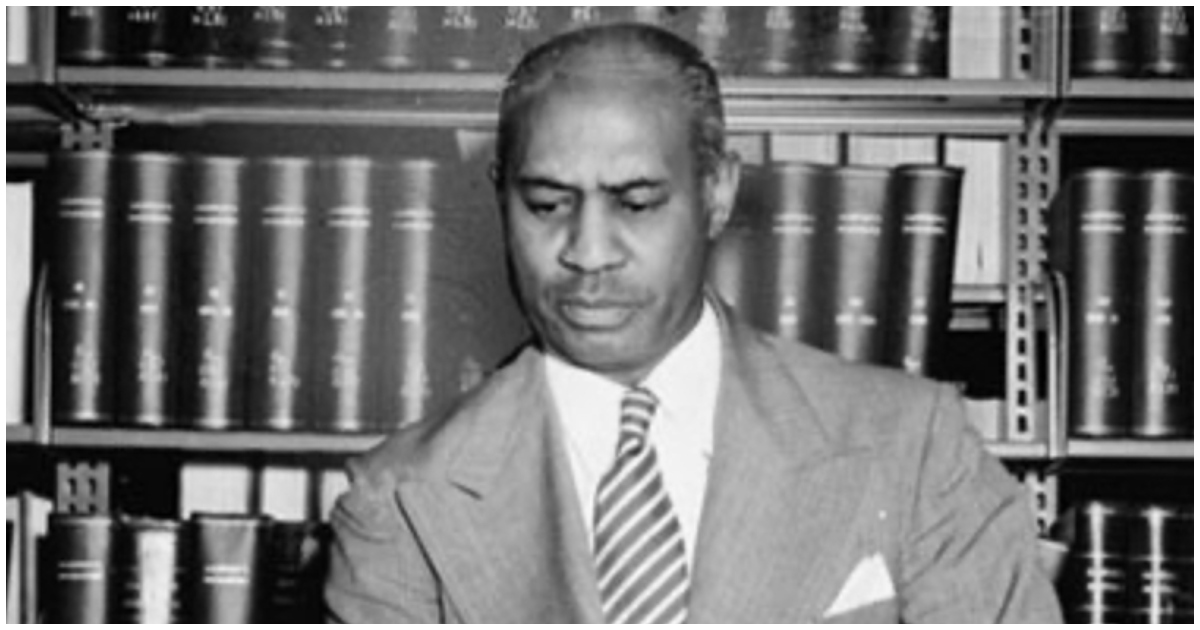Melvin B. Tolson Jr. made history in 1959 when he became the first full-time Black professor at the University of Oklahoma (OU). His arrival not only marked a milestone in the university’s history but also began his legacy of breaking racial barriers in higher education. Although his initial goal was simply to pursue his academic career, Tolson’s presence at OU made him an accidental leader, a role model, and a trailblazer for African Americans in academia.
Breaking Barriers at OU
In 1962, Tolson was appointed a special instructor at OU while working on his dissertation. By 1964, he had officially become the university’s first full-time Black professor. His impact extended far beyond the classroom. Tolson’s quiet demeanor and academic brilliance helped pave the way for future generations of Black scholars. “He has been an inspiring role model for an untold number of students,” said former OU President David Boren, reflecting on the profound influence Tolson had at the university.
Tolson’s ability to build relationships across different communities on campus made him a revered figure. George Henderson, a professor emeritus at OU, remembered how Tolson took the time to engage with Black students, encouraging them to connect and form supportive networks. He wasn’t just a professor—he was a mentor, always striving to create a sense of belonging.
A Family Legacy of Education and Excellence
Tolson was born in 1923 in Charlottesville, Virginia, and grew up in Marshall, Texas. His father, Melvin B. Tolson Sr., was a renowned poet and a coach of the historically successful debate team at Wiley College. The debate team famously defeated prestigious institutions, including Oklahoma City University and USC, a story later depicted in the film The Great Debaters, starring Denzel Washington.
The Tolson family’s emphasis on education and intellectual excellence deeply influenced Melvin B. Tolson Jr. He followed his father’s footsteps, excelling in academics. Tolson earned his bachelor’s degree in English and Philosophy in 1942 from Wiley College. Later, he attended Oklahoma State University, where he earned his master’s degree and became one of the first African Americans to do so at the institution. Tolson’s pursuit of knowledge was unwavering, and he sought to break down the educational barriers that Black students faced.
The Role of Tolson’s Legacy in OU’s Cultural Landscape
While Tolson’s academic achievements were remarkable, his legacy also lies in his contributions to OU’s cultural landscape. In the 1960s, after becoming a full-time professor, Tolson helped establish the Afro-American Student Union, now known as the Black Student Association. His involvement with the group and his continued support for Black students were instrumental in shaping the university’s approach to diversity and inclusion.
Tolson’s impact was not limited to Black students. His fluency in French and Spanish made him a beloved figure among Hispanic students as well. His influence spanned racial and cultural lines, earning him admiration from students of all backgrounds. “Tolson was pulling in the Latinos, and that was beautiful,” said George Henderson, reflecting on Tolson’s inclusive approach to teaching and mentorship.
Tolson’s Quiet Humility and Enduring Influence
Despite his groundbreaking achievements, Tolson was never interested in accolades. He remained humble, focusing on his academic work rather than seeking recognition. In 2002, OU honored Tolson by naming the Henderson-Tolson Cultural Center in his and Henderson’s honor. Though Tolson hesitated at first, believing he didn’t deserve such an honor, it stands as a testament to the lasting impact he had on the university community.
Tolson’s influence at OU continued long after his passing in 2011. His quiet dedication to education and his mentorship have left an indelible mark on the university. “I was always just me,” Tolson once said, reflecting on his role at OU. Despite his modesty, his legacy continues to inspire students and faculty alike, proving that even the most understated individuals can have a profound impact on the world.





